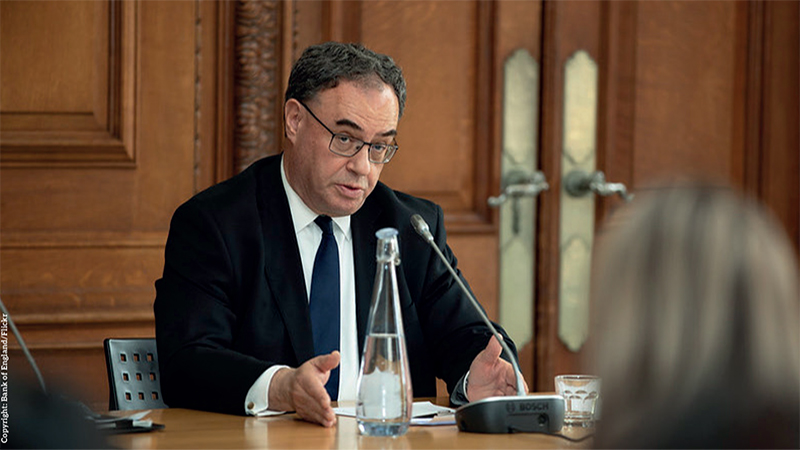The Bank of England has cut interest rates by 25 basis points to 4.25%.
Voting was divided among the Monetary Policy Committee (MPC) members, with two voting in favour of a 50 basis points (bps) reduction, while two voted to hold rates steady.
However, with five members electing to cut 25bps, governor Andrew Bailey (pictured) said the decision came due to easing inflation.
“The BoE has been in a pretty tricky position for quite a while now,” said Patrick O’Donnell, senior investment strategist at Omnis Investments. “Finding the balance between above target, persistent inflation, which is widely forecast to increase in 2025 and lacklustre growth is not easy.
“The tariff announcements in April and the increase in policy uncertainty have made their downside scenario more severe, due to the impact on global growth.”
He added that the 5-2-2 voting split had a “more dovish skew” than economist expectations.
“At the margin this will help UK markets. Risk sentiment is relatively buoyant today anyway. Of course it remains to be seen how long it lasts, with volatility expected to remain for the foreseeable future.”
See also: Impact investment offerings ‘could serve as a valuable USP’, according to wealth managers
Reaction
“The Bank of England’s decision to trim interest rates was as predictable as the tide, reflecting a pragmatic approach amid lingering global economic uncertainties – not least the knock-on effects of Donald Trump’s ongoing trade war,” added Myron Jobson, senior personal finance analyst at interactive investor.
“Despite the UK economy growing more than predicted in February (latest data available), policymakers remain laser-focused on bolstering domestic momentum.
“The latest rate cut signals a bid to turbocharge GDP growth, ensuring the UK can weather external headwinds while fostering a more resilient economic outlook.”
Michael Field, chief equity strategist at Morningstar, said the central bank has an unenviable task ahead as it seeks to maintain the balance between economic growth and keeping inflation in check.
“The UK is more insulated from tariffs than countries like Germany certainly, but the inevitable rise in inflation that would come with an escalation of the global trade war could make the Bank’s task tricky.
“Counter-balancing this is the threat of recession in such a situation, which would require the bank to lower rates, exactly the opposite set of actions.”
This story was written by our sister title, Portfolio Adviser








